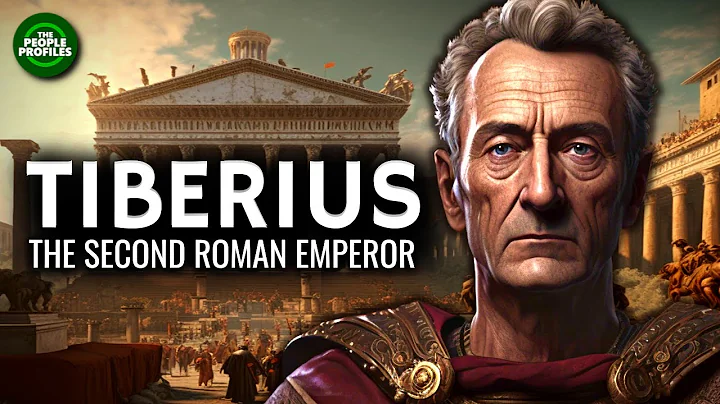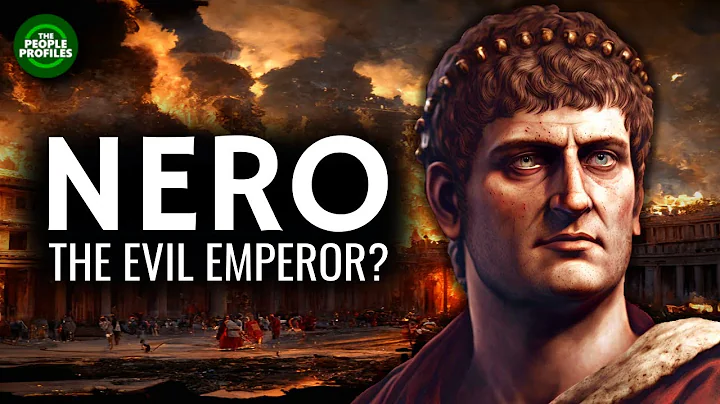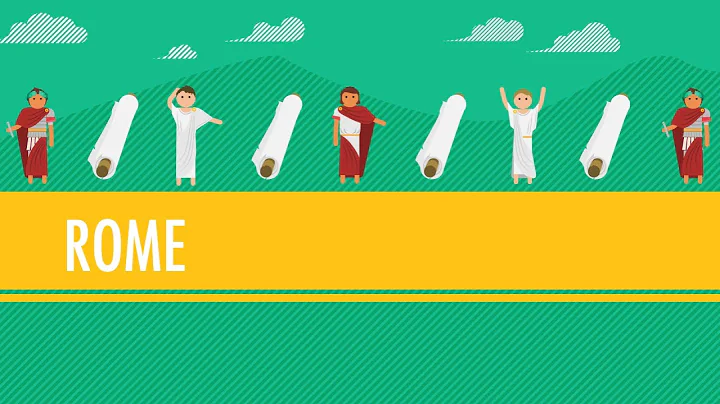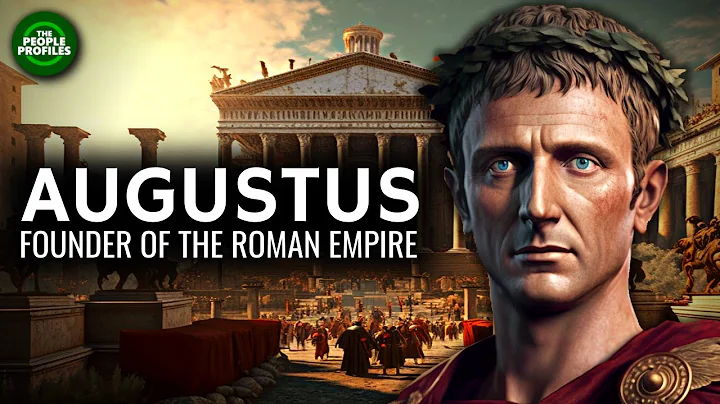In addition to ancient Greece , the most important ancient civilization in Western history is undoubtedly ancient Rome . This ancient country born on the Mediterranean Sea gave birth to a splendid civilization and is the cradle of modern Western civilization.

Above picture - Ancient Roman Temple
Among the historical figures in ancient Rome, the most well-known is naturally Caesar the Great, the founder of the ancient Roman Empire .
When he ruled Rome, Rome's national power reached its peak, and he also had unparalleled reputation. However, throughout his life, Caesar never proclaimed himself emperor, and Rome nominally continued the system of a republic.
It was not until after his death that his successor Octavian was revered as " Augustus " and officially led ancient Rome into a feudal imperial society.
But what is very strange is that later people did not use "Emperor" to refer to Octavian, the founding emperor, but the title of Caesar the Great spread. What is the reason behind this?

Above picture - Caesar's statue
1. Caesar's early experience
Gaius Julius Caesar was born into an aristocratic family in ancient Rome. His father had previously served as the treasurer and grandmaster of the Roman Republic. The judge also ruled Asia Minor for a period of time and has extremely rich political experience.
Caesar's mother was not the daughter of an ordinary family. Her father, Lucius Aurelius Cotta, had served as the consul of the Republic and had extremely rich political resources.

Above picture - Caesar stills
Caesar's noble birth allowed him to receive a good education from an early age. He showed extraordinary talent during the days when he studied in an aristocratic school. When he was a teenager, he was able to rewrite ancient times by himself. Greek classic drama, he also has his own unique vision for business and politics.
Moreover, he is meticulous and not as introverted as some precocious geniuses. He also has excellent eloquence and always has the upper hand when discussing issues with others.
The excellent Caesar also has a rare grace. Although he is aggressive in the debate arena, he has a generous and elderly style in his daily life, which makes him gain the respect of his classmates in school.
However, under his benevolent appearance, he had a stubborn heart. He was very insistent on his own ideas, which was also an important reason why Caesar could become a dictator.

Above picture - Ancient Roman Senate
After Caesar accepted the rite of passage, he began to get involved in Roman politics.
As a Roman aristocrat, Caesar did not stand on the side of the aristocracy in his political stance. On the contrary, he paid more attention to the suffering of the people. This was probably influenced by his uncle Gaius Marius .
He radically wanted to change the Roman political system to give the common people more power, but such a proposal would obviously be opposed by the consuls, who even wanted to execute Caesar, but Caesar left before that. Rome headed east, which allowed him to escape danger.

Picture above - young Caesar
Although Caesar returned to Rome many times in the following years, he never got the political status he dreamed of. In order to strengthen his abilities, he later worshiped Apollo in Rhodes Island. He learned debate under Lonios, which greatly improved his eloquence.
2. Caesar became a dictator
After studying in Rhodes for a year, Caesar returned to Rome and became a priest. Two years later, he was transferred to a military tribune.
In the following years, Caesar relied on his extraordinary political ability to rise in the officialdom. After serving as financial officer for a year, he finally obtained the qualifications of a member of the Senate.

Above picture - Caesar's statue
During this period, the consul Cicero advocated ensuring the interests of the nobility, which caused a near break between the Senate and the civilian class. Naturally, Cicero, who lost the support of the people, could not No big thing was accomplished, but Caesar got closer and closer to the common people, which allowed him to accumulate considerable prestige, and he was successfully elected as the chief priest and chief judge of Rome.
Later, he launched a war against the Lusitans and Galaesi in Iberian Peninsula and achieved brilliant victory. With his military exploits, Caesar asked the Roman Senate for the position of consul, but in the end he only got it. qualifications of the candidate.
Caesar successfully won the election in the subsequent election. He knew that his ability was not enough to control the entire Rome, so he attracted the former consuls Pompey and Crassus , and the three formed the "First Triumvirate" , which gave Caesar enough political power.
Another consul, Bibulus, seeing that he could not compete with Caesar, announced his withdrawal from all political activities, which allowed Caesar to monopolize power and become the dictator of Rome.

Above picture - the Roman army in the Gallic War
After the end of his term as consul, Caesar became the governor of Gaul. He was unwilling to end his ruling career like this. In order to enhance his prestige, he took office The Gallic War was launched soon after, and in the next nine years he conquered the entire Gaul region, merged the large areas around it into a province, and became the master of this land.
The victory in the Gallic War made Caesar's power threaten the Senate.
At this time, Crassus died, and the Triumvirate completely disintegrated. In order to strengthen the power of the Senate, they roped in Pompey to join their team, and Rome fell into a dangerous situation of confrontation between the two giants.
After some political games, the war between Caesar and the Senate inevitably broke out. Although the Senate and Pompey resisted, their teams obviously could not compete with the experienced Caesar. The military is comparable.
In the end Pompey led his family to escape from the Italian peninsula, and Caesar also led his army into the city of Rome.

Above picture - Caesar was assassinated
Under Caesar's strong military pressure, the Senate had no choice but to elect him as dictator, which gave Caesar supreme power.
He knew that Pompey still had a lot of power in Rome, so in the next few years, he first went to Spain to annihilate Pompey's main army, and then successively attacked Greece , Egypt and Pontus. The kingdom has achieved brilliant victories every time, which also made Caesar leave the famous saying:
I come, I see, I conquer.
After Caesar defeated Pompey's two sons in 45 BC, the Roman Empire under his rule could no longer threaten the existence of his rule, so the following year he declared himself dictator of the Roman Republic for life. This officially entered the era of dictatorship in Rome.
Although he was assassinated by the senators of the Senate shortly afterwards, he still had an irreversible and profound impact on Roman politics.
3. The reason why Caesar is called the Great
After Caesar was assassinated, his designated heir and adopted son Octavian inherited his status as consul. Afterwards, under the leadership of Octavian, Rome made many achievements one after another. With the victory in foreign wars, Octavian, who played an important role in the battle, gained a reputation similar to that of his adoptive father Caesar.
This allowed him to later be named "Generalissimo" and "Augustus" by the Roman Senate. This was also regarded as a signal that Rome had officially entered the imperial system. At this point, Rome was no longer governed by consuls and had followed the aristocratic republic for many years. This is it.

Above - Statue of Octavian
However, Octavian, the first emperor in the history of the Roman Empire, is rarely called "the Great" by people. On the contrary, Caesar did not call himself emperor but almost became synonymous with the Great. This It is undoubtedly a curious phenomenon, but in the author's opinion, this is indeed a very reasonable thing.
First of all, in the early days of the ancient Roman Empire, the meaning of emperor was not clear. Although we now regard Octavian as the first emperor of the Roman Empire, in the eyes of the people of ancient Rome, there was not much difference between Octavian and Caesar. There is no obvious boundary between the two.
Furthermore, while Caesar was still alive, Rome's territory had been greatly expanded. He was also the first military leader in Roman history to cross the Rhine and attack the Germans.It can be said that the development of the Roman Empire to its peak was due to Octavian's contribution, but Caesar's contribution was undoubtedly more prominent.

Above picture - the territory of the Roman Empire
The most important thing is that the emergence of Caesar represents the formation of a new political system. In the history of the Roman Republic before Caesar, although there were careerists who hoped to achieve dictatorship, none of them had the personal charisma and political ability of Caesar.
It was the emergence of Caesar that convinced the Roman people that someone could build Rome into a better country on his own without relying on the seemingly more democratic Senate system. Compared to the Senate, which only wanted to protect the interests of the nobility, Caesar was the one who cared more about the common people. This was also the fundamental reason why Caesar won support.
Therefore, for the history of ancient Rome, the emergence of Caesar was undoubtedly a turning point in the entire history. The impact it brought to people was so powerful and his achievements were too dazzling. People called him the Great as an affirmation of his ability. . Although Octavian, the real emperor, also performed well, he could only sit at the bottom of the throne under the glory of Caesar.

Picture above - the ancient Roman Colosseum
4. Conclusion
China is a country that pays great attention to status. From the Spring and Autumn Period and the Warring States Period, no matter what we do, we must pay attention to a legitimate name. A person absolutely cannot give up what he does not have. The title is placed on one's head.
It is precisely because of this that we have always been skeptical about people calling Caesar the Great who did not proclaim himself emperor.
But in fact, the title Caesar the Great itself is not very accurate. The definition of emperor in Western culture is not uniform, so this title is actually more like an affirmation of Caesar's achievements and dictator's identity. Even on many occasions, Caesar's name is an accurate description of dictatorship and emperor.
As a key figure in Rome's transition from a republic to an empire, Caesar proved to the people of Rome the feasibility of dictatorship, and relied on his outstanding personal charm to win the welcome of representatives from all walks of life. In his hands, Rome officially became Mediterranean The overlord of , these are enough to make Caesar the number one great man in Roman history.
Therefore only a person like Caesar can be called the Great, and he does have such qualifications.

Above picture - an ancient Roman gold coin with Caesar's image on it
Note:
The description of Roman history in this article is taken from "Rome: The Eternal City"
The article combines historical data with personal understanding and analysis. If you have different opinions, please Welcome to leave a message to discuss





















